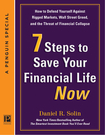
The most common question I get from readers of my books is: "I want to implement your index portfolios, but I have to consider the uncertainty in the financial world. When is the best time to invest?"
My answer is it is always the right time to invest in a suitable asset allocation, using a globally diversified portfolio of low management fee stocks and bond index funds (or a laddered bond portfolio, if that is suitable for you). This doesn't mean I have any special insight into whether the market will continue its upward trajectory or tank in the short term. I don't, and neither does anyone else.
The reality is that millions of traders all over the world have considered the same issues troubling you. They have accounted for those factors in the current price of stocks and bonds. What will drive prices is tomorrow's news and not news already in the public domain.
Instead of fretting about the future, you should be focusing on your asset allocation (the division of your portfolio between stocks and bonds). If you want higher expected return, you should consider taking more risk by allocating a greater portion of your investments to stocks, assuming you can handle the volatility. This approach is far superior to listening to those who claim to be able to predict the future.
The stock market has a long history of market cycles. Weston Wellington, a Vice President of Dimensional Fund Advisors, looked at how many years it took the market to recover from losses after a market crash. He found that, excluding the Great Depression, it took anywhere from 1.3 years to 4.4 years for the market to achieve a new high in terminal wealth after a major crash, based on month-end values of the S&P 500 Index with reinvested dividends. After the Great Depression, investors had to wait 15.4 years for a recovery to pre-crash market highs.
The current market cycle is illustrative. The S&P 500 peaked in October 2007. It bottomed out in February 2009 with a loss of 50.9 percent. It took 4.4 years (until March 2012) for the S&P 500 to recover.
Don't ask: "Is it different this time?" Instead, the real issue is whether you have the stomach to weather the next inevitable market crash, and the patience and financial resources to hold on for the likely recovery.

